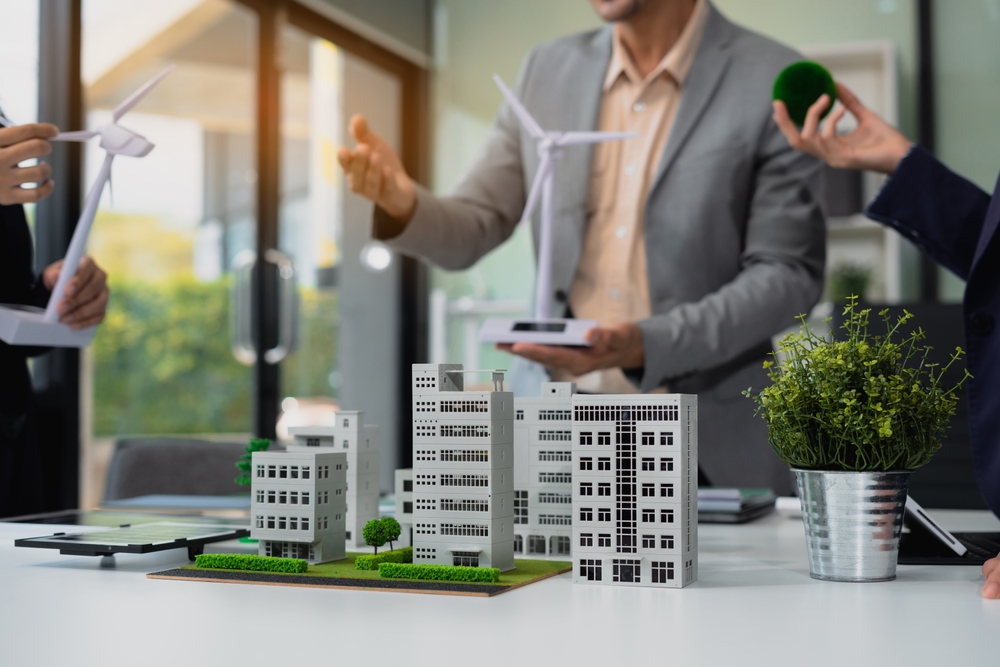Building Green in 2025: The Role of Building Control in Sustainable Construction
As climate goals become more urgent and developers strive to meet new sustainability benchmarks, building control is taking on a greater role than ever before. In 2025, constructing with the environment in mind isn’t just a preference—it’s a responsibility. From energy efficiency to sustainable materials, achieving compliance with building regulations is crucial for the long-term success of green construction projects. But how exactly does building control support this journey?
Let’s explore how building control contributes to sustainable construction in today’s built environment.
Defining Sustainable Construction in 2025
Sustainable construction involves designing, building, and operating structures to minimise environmental impact. This includes reducing carbon emissions, improving energy performance, conserving natural resources, and ensuring healthy indoor environments for occupants.
In 2025, UK regulations and guidance—like Part L (Conservation of Fuel and Power) and the Future Homes Standard—push developers to achieve ever-higher efficiency and performance standards. Building control is vital in enforcing these measures, ensuring sustainability goals are set and met.
Energy Efficiency: A Key Compliance Priority
One of the central focuses of modern building control is energy performance. Inspectors review architectural plans and perform site visits to confirm that insulation, heating systems, lighting, and ventilation meet current energy efficiency standards.
Here’s how building control ensures energy compliance:
- Plan Review: Before construction begins, inspectors assess whether proposed insulation levels, glazing, and heating systems meet legal U-values.
- On-Site Verification: Site inspections confirm that energy-saving features are correctly installed and align with approved plans.
- Air Tightness Testing: Where required, air permeability is tested to reduce uncontrolled heat loss.
Building control helps reduce energy bills, lower carbon footprints, and future-proof buildings against stricter regulations by supporting these checks.
Supporting the Use of Sustainable Materials
Materials matter. From responsibly sourced timber to low-carbon concrete alternatives, developers’ choices today impact the planet tomorrow.
Although building control doesn’t dictate material choices outright, it ensures that materials used comply with relevant standards and are suitable for purpose. This indirectly promotes:
- Durability and longevity (reducing resource waste)
- Safe reuse and recycling of components
- Compliance with fire safety and thermal performance standards
Inspectors also assess whether construction methods minimise waste and environmental impact—especially on refurbishment projects or retrofits.
Sustainable Urban Development and Accessibility
Sustainable design extends beyond energy and materials in cities like London, where All Building Control operates. It includes accessible public spaces, green roofs, efficient drainage systems, and smart transport integration.
Building control plays an active role in ensuring these elements are not overlooked:
- SUDS (Sustainable Urban Drainage Systems) are evaluated under Approved Document H.
- Accessibility standards under Part M ensure inclusivity, another pillar of sustainable design.
- Acoustic and thermal comfort are checked to enhance long-term livability.
This holistic approach ensures sustainable buildings are practical, inclusive, and enjoyable places to live and work.
Fire Safety and Sustainability: Not a Trade-Off
One common misconception in sustainable design is that green buildings may sacrifice safety. In reality, building control professionals are trained to evaluate how innovative or eco-friendly design elements—like timber structures, open ventilation systems, or living walls—impact fire safety and structural integrity.
For instance:
- Timber buildings are assessed against the spread of flame requirements (Approved Document B).
- New insulation materials must be certified and correctly installed to avoid fire risks.
- Green roofs and cladding are evaluated to comply with sustainability and safety codes.
By providing expert oversight, building control bridges the gap between innovation and compliance.
Early Involvement = Better Outcomes
Too often, developers introduce building control late in the process, leading to costly redesigns or compliance setbacks. In 2025, the most successful sustainable builds will begin with early collaboration.
Engaging a Registered Building Control Approver (like All Building Control) early means:
- Sustainability goals are built into the project from the ground up.
- Problems can be anticipated and resolved before they affect the build.
- Costly retrofits or enforcement issues are avoided.
Early input leads to smoother projects, greener outcomes, and more predictable timelines.
All Building Control: Your Partner in Sustainable Compliance
At All Building Control, we understand the challenges of balancing innovation with regulation. As a Registered Building Control Approver (RBCA), we work closely with developers, architects, and contractors to ensure every aspect of a project meets—and often exceeds—sustainability expectations.
Whether you’re planning a new build, a retrofit, or a mixed-use development in the heart of London, our team of RICS-accredited inspectors ensures that your green goals translate into safe, compliant structures.
We don’t just tick boxes—we provide clarity, confidence, and peace of mind.
Final Thoughts
Sustainable construction isn’t just a trend—it’s the future. Building control is central to making that future a reality. By guiding developers through complex regulations, verifying responsible practices, and supporting innovative design, building control professionals are the unsung heroes of the green building movement.
In 2025, building responsibly means building compliantly—and All Building Control is here to lead the way.
Whether you’re at the concept stage or ready to break ground, contact us to learn how we can support your next sustainable project.
Stay updated with our latest projects and expert tips—follow us on Facebook and Instagram today!

